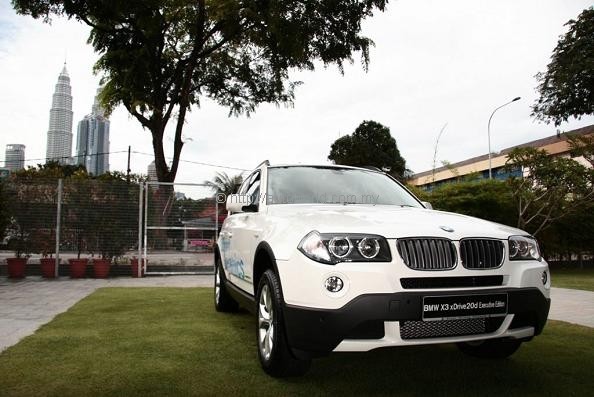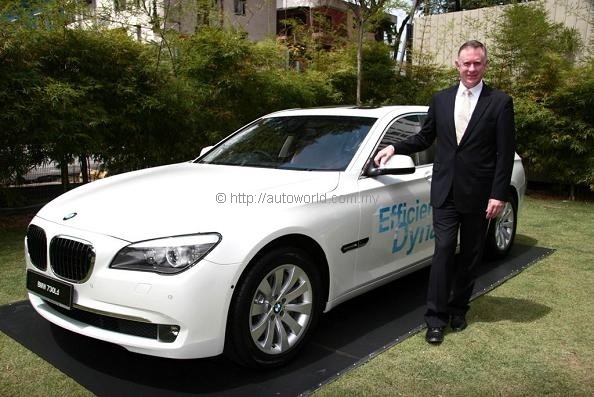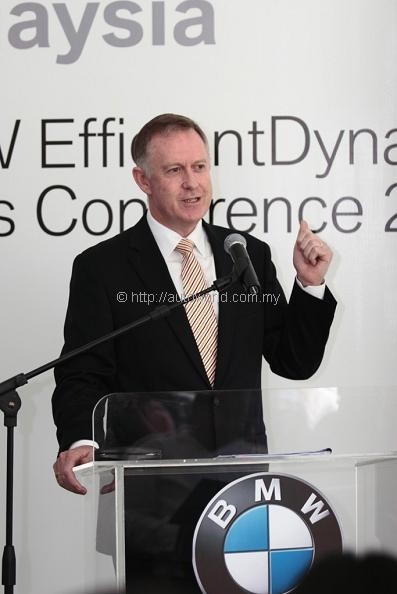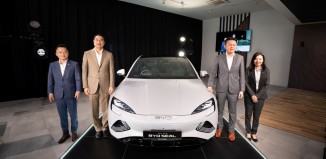Four new BMW EfficientDynamics models launched
Not too long ago, and to a certain extent this is still true today, the perception of diesel-powered vehicles in Malaysia are hardly positive. As the Europeans marched ahead with the widespread use of clean and efficient diesel engines, we are still seeing plumes of black smokes from our underpowered buses and lorries.
Mercedes and BMW have went some way to improve our views on oil burners with models like the E 270 CDI and the 530d, but because our pumps still dispense dated Euro 1 diesel, many of the sophisticated diesel models from the continent could not make it here without significant tuning adjustments to their engines.
Things have been opening up though. Discounting pickups, the likes of the Chevrolet Captiva, Kia Sorento, and Hyundai Santa Fe are moving diesel power closer to the reaches of the average citizen. However, those are SUV models. The passenger car segment remains pretty much a petrol-only affair.
Change does not happen overnight, but change requires pioneers, and BMW has made a bold and daring decision to bring not one, not two, but four new diesel models into our shores. This boosts the number of diesel-powered vehicles in BMW Malaysia’s current line-up to five.
Marketed under the BMW EfficientDynamics banner, the 320d Sports, 520d Sports Edition, X3 xDrive20d Executive Edition, and the 730Ld joins the X5 xDrive30d in the BMW Malaysia’s diesel model lineup, with the 525d and 530d having been discontinued some time back.
“The Efficient Dynamics concept has been at the core of the BMW Group for more than a decade and plays a significant role in our long-term strategy for corporate sustenance. We strongly believe in the responsibility of producing fuel-saving and alternative vehicle concepts through clean production processes. In doing so, we have dedicated the concept of Efficient Dynamics as a standard for all our product lines instead of having it exclusive to a single model or series,” said Geoffrey Briscoe, Managing Director of BMW Malaysia.
According to further info from the folks at BMW Malaysia, there are now over one million BMW cars equipped with various forms of EfficientDynamics technologies worldwide. These technologies include High Precision Injection, BMW Advanced Diesel, Electric Power Steering, Brake Energy Regeneration, aerodynamic design, and lightweight construction. All sounding nice and good, but what do they do?
The High Precision Injection (HPI) system utilizes piezo-electric injectors positioned right between the valves to facilitate lean-burning of fuel – a process where the engine uses more air and reduced amounts of fuel to achieve combustion.
Electric Power Steering systems seem to be the ‘in’ thing at the moment, with more manufacturers embracing its use in the name of fuel saving purposes. Though often chided by journalists for being artificial in feel compared to a conventional hydraulic system, BMW nevertheless noted that it offers a significant advantage because ‘energy is only consumed during actual steering process and not when the steering wheel is in a fixed position’.
One notable drain in the engine power output of most cars is the electrical system which continuously saps power via the alternator. Brake Energy Regeneration helps in this respect considerably by charging the vehicles battery only when the driver’s foot is off the throttle. This simple measure ensures significant reduction in consumption and boost in performance.
The BMW EfficientDynamics approach also covers the use of optimum aerodynamics for reduced wind resistance in addition to extensive use of weight saving materials.
Powering the new EfficientDynamics quartet are the latest BMW Advanced Diesel turbocharged engines claimed to offer the high torque married with low fuel consumption. The 320d, 520d and X3-20d (our short form) are all powered by the 1,995cc N47 D20 four-cylinder turbodiesel engine. Its output figures are rated at 177hp @ 4,000rpm and 350Nm @ 1,750 – 3,000rpm.
BMW claims, based on the EU’s methods of fuel consumption measure, the 320d, 520d and X3-20d manage class-leading figures of 6.0, 6.1, and 7.0 litres/100km respectively. They are no slouches either. All three complete the century sprint comfortably less than 10 seconds at 8.0, 8.4 and 9.2 seconds respectively.
The 730Ld, meanwhile, gets the 2,993cc M57 D30 straight-six engine with variable geometry turbocharging. It is a highly reworked version of the engine found in the 530d. In this iteration, the M57 churns out 245hp @ 4,000rpm and a whopping 540Nm of torque is twisted out from 1,750 to 3,000rpm. Claimed figures are 7.3 seconds from zero to hundred, and 6.9 litres of diesel burned per 100km.
Speaking at the launch ceremony held last week, Mr Briscoe noted that, “Diesel-powered engines provide 75 percent better torque and 15 percent more horsepower. However, what is more impressive is that in comparison to petrol engines, diesel engines are up to 30 percent lower in fuel consumption and 20 percent lower in carbon monoxide emissions. Our new BMW EfficientDynamics cars enable our cars to travel up 1000 km on a single tank of fuel. For the layman, this means that for every six days of travel, two days are considered free of fuel cost and most importantly, it is better for the environment.”
“Our new BMW EfficientDynamics cars are capable of being efficient and safer to the environment with whatever quality grade of diesel. However, the better the quality of diesel which is utilised, the more fuel and CO2 efficient our cars will be. We certainly look forward to bring in more models to help accelerate the awareness of this kind of clean technology to Malaysian consumers” said Briscoe.
The four new EfficientDynamics models have been on display in showrooms since 3 Oct 2009. Retail prices in the Peninsula, OTR without insurance with BMW Service Inclusive 3 years / 60,000km + Repair are as follows:
 |
Photography: Courtesy of BMW Malaysia Sdn Bhd.































